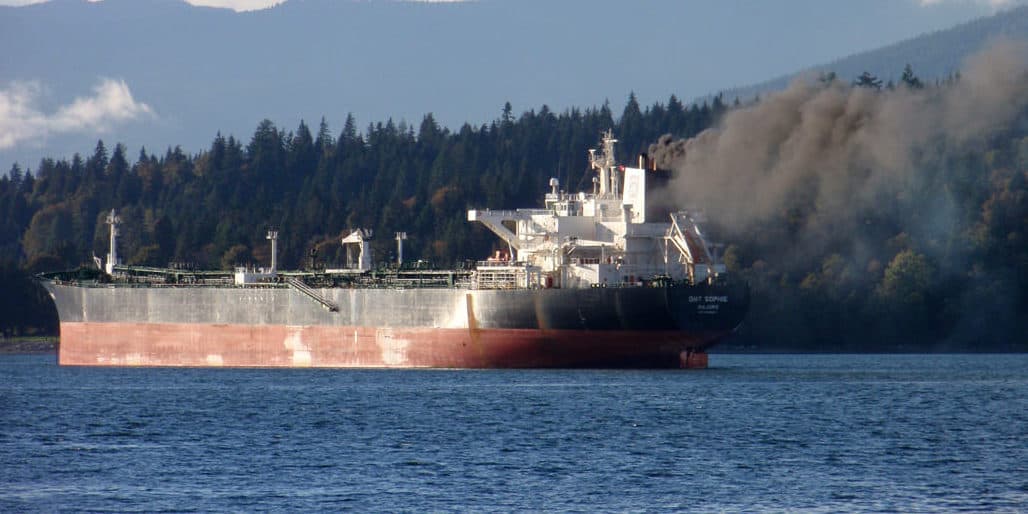Last week the propaganda campaign pushing Kinder Morgan‘s controversial Trans Mountain oil tanker-pipeline proposal sunk to a new low. In an attempt to assuage investors sniffing around the $1.75 billion initial public offering (IPO) his company is launching on May 31st Ian Anderson, president of Kinder Morgan Canada Limited, issued a press release saying: “Our approvals are in hand and we are now ready to commence construction activities this fall.”
Sounds good doesn’t it?
If only it were true.
It’s not! In fact, it’s a complete fabrication.
When I contacted a senior staffer with the B.C. government and read him Anderson’s quote about having “approvals in hand,” he said: “As far as I know Kinder Morgan has no provincial permit approvals in hand. We are still trying to determine how the 157 conditions the National Energy Board imposed, as well as British Columbia conditions, map onto the provincial permitting process.”
It’s hard to reconcile statement that the approvals are in hand with the fact that no provincial permits have been granted and significant federal approval remain. There are only two possible explanations for this huge discrepancy.
One, Kinder Morgan Canada’s President is lying in order to puff his IPO, counter the escalating political risk facing his proposal, and mislead investors about the timing of when construction will begin; or
Two, Ian Anderson doesn’t know the true state of the permits and legislative risk facing his controversial proposal.
I don’t know which explanation is more damaging when trying to entice investors to hand over $1.75 billion in an IPO.
The reality is that the $7.4 billion proposal only has two of the hundreds of approvals needed to put shovels in the ground.
Let’s recap.
While the Trans Mountain proposal did receive Cabinet approval last November, and environmental assessment approval from B.C. in January, there were 157 conditions set by the National Energy Board as well as dozens more from the Province.
More, almost 400 residents have filed objections to the final route Kinder Morgan is seeking to have approved by the National Energy Board, there is a high probability that some segments of the proposal will need to be rerouted and the final routing decision could take a long time.
Plus the province hasn’t even identified, let alone granted, all of the 60 plus permits needed from B.C.
Sounds like Kinder Morgan faces significant risks and is actually a long way from being “ready to commence construction activities this fall.”
The timing of Kinder Morgan’s press release and initial public offering is also suspicious. The announcement came less than 24 hours after the B.C. election results were finalized, with the two parties holding a majority of the seats committing to do anything in their power to stop the proposal. Meanwhile the bell on the initial public offering is scheduled to ring within hours of the news about a potential governing alliance between parties committed to rejecting Kinder Morgan.
Markets want certainty! So why would Kinder Morgan executives be issuing misleading press releases and rushing to market while facing escalating political risk?
The answer is, as usual, money. Lots of money for the financially beleaguered company bereft of partners, carrying huge debts, a falling credit rating credit rating and a project unlikely to ever be built.
In an investor call held just before the provincial election, financial blogger David Alton Clark asked Kinder Morgan reps what would happen if the Trans Mountain were abandoned. “It would certainly be a major setback, but with ground not broken yet, KMI could direct most of the cash we would use for this project to other projects,” Clark reports them saying.
“The investor relations team indicated only $600 million in sunk costs on TMEP presently,” Clark writes. So, how much cash will Kinder Morgan Canada net if next week’s IPO goes to plan? Somewhere between $500 million and $750 million.
That brings Kinder Morgan’s odd choices into focus. Even if the Trans Mountain proposal gets bogged down – by a antagonistic new provincial government, or by the 19 lawsuits it faces, or by the massive civil disobedience opponents promise – if Kinder Morgan can entice enough investors to hand over $1.75 billion in an initial public offering, the company will walk away with hundreds of millions even if the proposal dies and investors lose their shirt.
No wonder Ian Anderson lied.
